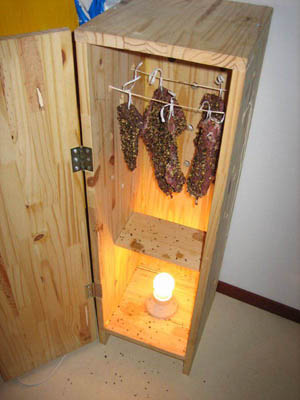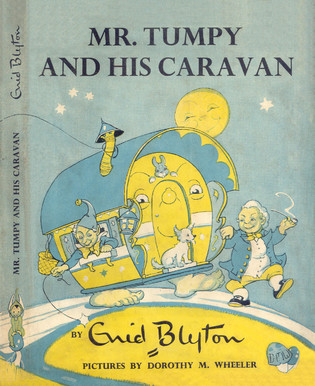For me here in the States, it’s biltong weather: the weather is cool enough so the beef won’t get funky in the heat and kill me. Of course it might still, because as Wikipedia notes, biltong is a kind of cured meat from South Africa: the “curing” being salt and a brushing of cider vinegar. My ex built me a Biltong Box with a 60 watt bulb in the bottom, where I hang the beef for about three days using eight-inch cable ties. The hooks I used to employ rusted out, this is better. I like my biltong “wet,” that is to say, on the raw side, more taste if you know what I mean. Of course, you’re probably making a face, unless you’re South African and then you’ll understand. The biltong back in Africa is much tastier, not sure why—the beef isn’t as hormoned-out?—and the strips much bigger than my dinky little Supermarket specials. The Americans who’ve tried my biltong love it. Of course, I had them sign a waiver—just kidding, but I probably should’ve.
Recipe
- Beef (Preferably Round steak)—1-inch thick
- Rock Salt
- Coarse Ground Black Pepper
- Coarse Ground Coriander
- Vinegar (preferably Apple Cider vinegar)
Sterilize all your hooks, knives, and working surfaces by washing well in hot water and soap.
Cover both sides of the meat with rock salt and let stand for an hour. The longer you let it stand the saltier it will become. Scrape off all the excess salt with a knife (don’t soak it in water!). Cut into two-inch strips then brush (do not dip) with the vinegar, just so the meat is covered. Let the excess vinegar drip off then sprinkle with pepper and coriander and hang.

Here’s a photo of a biltong maker in South Africa.

 Is this the year for dead authors from my childhood with new books out or what? (See
Is this the year for dead authors from my childhood with new books out or what? (See 

